Related Research Articles

Chaim Topol, also spelled Haym Topol, mononymously known as Topol, is an Israeli actor, comedian, singer, film producer, author, and illustrator. He is best known for his portrayal of Tevye the Dairyman, the lead role in the musical Fiddler on the Roof, on both stage and screen, having performed this role more than 3,500 times in shows and revivals from the late 1960s through 2009.

Tevye the Dairyman, also translated as Tevye the Milkman is the fictional narrator and protagonist of a series of short stories by Sholem Aleichem, and various adaptations of them, the most famous being the 1964 stage musical Fiddler on the Roof and its 1971 film adaptation. Tevye is a pious Jewish dairyman living in the Russian Empire, the patriarch of a family including several troublesome daughters. The village of Boyberik, where the stories are set, is based on the town of Boyarka, Ukraine, then part of the Russian Empire. Boyberik is a suburb of Yehupetz, where most of Tevye's customers live.

Mary Poppins is a 1964 American musical fantasy film directed by Robert Stevenson and produced by Walt Disney, with songs written and composed by the Sherman Brothers. The screenplay is by Bill Walsh and Don DaGradi, based on P. L. Travers's book series Mary Poppins. The film, which combines live-action and animation, stars Julie Andrews in her feature film debut as Mary Poppins, who visits a dysfunctional family in London and employs her unique brand of lifestyle to improve the family's dynamic. Dick Van Dyke, David Tomlinson, and Glynis Johns are featured in supporting roles. The film was shot entirely at the Walt Disney Studios in Burbank, California, using painted London background scenes.
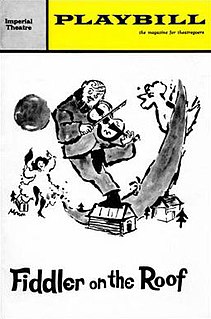
Fiddler on the Roof is a musical with music by Jerry Bock, lyrics by Sheldon Harnick, and book by Joseph Stein, set in the Pale of Settlement of Imperial Russia in or around 1905. It is based on Tevye and his Daughters and other tales by Sholem Aleichem. The story centers on Tevye, a milkman in the village of Anatevka, who attempts to maintain his Jewish religious and cultural traditions as outside influences encroach upon his family's lives. He must cope with the strong-willed actions of his three older daughters who wish to marry for love; their choices of husbands are successively less palatable for Tevye. An edict of the tsar eventually evicts the Jews from their village.
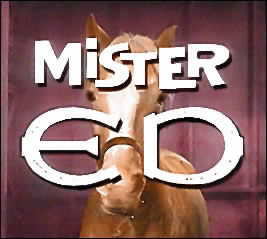
Mister Ed is an American television sitcom produced by Filmways that aired in syndication from January 5 to July 2, 1961, and then on CBS from October 1, 1961, to February 6, 1966. The show's title character is a talking horse which originally appeared in short stories by Walter R. Brooks.

Theodore Meir Bikel was an Austrian-American actor, folk singer, musician, composer, unionist, and political activist. He appeared in films, including The African Queen (1951), Moulin Rouge (1952), The Kidnappers (1953), The Enemy Below (1957), I Want to Live! (1958), My Fair Lady (1964), The Russians Are Coming, the Russians Are Coming (1966), and 200 Motels (1971). For his portrayal of Sheriff Max Muller in The Defiant Ones (1958), he was nominated for the Academy Award for Best Supporting Actor.
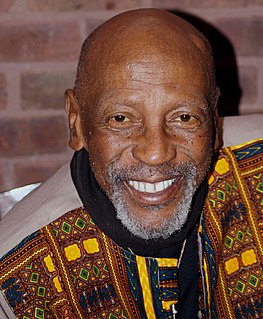
Louis Cameron Gossett Jr. is an American actor. He was a folk singer in the 1960s. He is best known for his role as Gunnery Sergeant Emil Foley in the 1982 film An Officer and a Gentleman, winning him the Academy Award for Best Supporting Actor. He also won an Emmy Award for his role as Fiddler in the 1977 ABC television miniseries Roots.
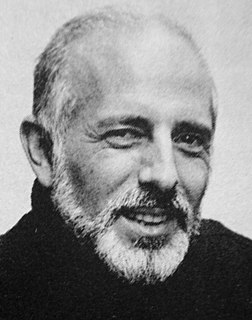
Jerome Robbins was an American dancer, choreographer, film director, theatre director and producer who worked in classical ballet, on stage, film, and television.

Sheldon Mayer Harnick is an American lyricist and songwriter best known for his collaborations with composer Jerry Bock on musicals such as Fiorello! and Fiddler on the Roof.

Judy Kuhn is an American actress and singer, known for her work in musical theatre. A four-time Tony Award nominee, she has released four studio albums and sang the title role in the 1995 film Pocahontas, including her rendition of the song "Colors of the Wind", which won its composers the Academy Award for Best Original Song.

Joseph Stein was an American playwright best known for writing the books for such musicals as Fiddler on the Roof and Zorba.

Herschel Bernardi was an American actor and singer. He is best known for his supporting role in the drama television series Peter Gunn (1958–1961) and his leading role in the comedy television series Arnie (1970–1972). The two series earned him a Primetime Emmy Award nomination and two consecutive Golden Globe Award nominations.
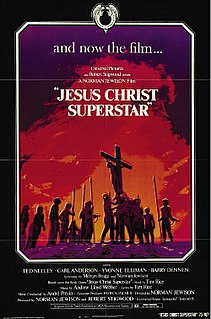
Jesus Christ Superstar is a 1973 American musical drama film directed by Norman Jewison and jointly written for the screen by Jewison and Melvyn Bragg; they based their screenplay on the 1970 rock opera of the same name, the libretto of which was written by Tim Rice and whose music was composed by Andrew Lloyd Webber. The film, featuring a cast of Ted Neeley, Carl Anderson, Yvonne Elliman, Barry Dennen, Bob Bingham, Larry Marshall, Josh Mostel, Kurt Yaghjian and Philip Toubus, centers on the conflict between Judas and Jesus during the week of the crucifixion of Jesus.

Fiddler on the Roof is a 1971 American period musical film based on the 1964 stage musical of the same name, produced and directed by Norman Jewison. Set in early 20th-century Imperial Russia, the film centers on Tevye, played by Topol, a poor Jewish milkman who is faced with the challenge of marrying off his five daughters amidst the growing tension in his shtetl. The cast also features Norma Crane, Leonard Frey, Molly Picon, Paul Mann, Rosalind Harris, Michèle Marsh, Neva Small and Paul Michael Glaser. The musical score, composed by Jerry Bock with lyrics by Sheldon Harnick, was adapted and conducted by John Williams.

Danny Burstein is an American actor and singer, most known for his work on the Broadway stage.
"Do You Love Me?" is a song from the 1964 musical Fiddler on the Roof. It is performed by Tevye and his wife Golde.
"Sunrise, Sunset" is a song from the musical Fiddler on the Roof written in 1964 by composer Jerry Bock and lyricist Sheldon Harnick.
"Matchmaker, Matchmaker" is a song from the 1964 musical Fiddler on the Roof, with music by Jerry Bock and lyrics by Sheldon Harnick. It was later made into a film in 1971. The story revolves around a poor Jewish milkman, Tevye, and his five daughters, as he attempts to maintain his Jewish traditions. His three eldest daughters marry, but each daughter's choice of husband moves further and further away from their traditions.
Samantha Massell is a New York-based American actress and singer notable for playing Hodel in the 2015 Broadway revival of Fiddler on the Roof. She has received positive reviews of her singing and acting performance. Her genre is pop.
Fiddler: A Miracle of Miracles is a 2019 American documentary film about the creation and significance of the 1964 musical Fiddler on the Roof. Directed by Max Lewkowicz, it features interviews with Fiddler creators such as Jerry Bock, Sheldon Harnick, Joseph Stein, and Harold Prince, as well as scholars, actors, and other musical theatre figures such as Stephen Sondheim and Lin-Manuel Miranda.The documentary includes rarely-seen footage of the original Broadway cast as well as interviews with creators, actors, theatrical figures, and scholars.
References
- ↑ Phillips, Elizabeth (March 2015). "Fiddler on the Roof: A Balancing Act" (PDF). The Montag. 4: 130–143. Retrieved 23 February 2016.
- ↑ "'Fiddler On The Roof' Synopsis" mtishows.com, accessed February 23, 2016
- ↑ "'Fiddler on the Roof' Notes" tcm.com, accessed February 23, 2016
- ↑ Isenberg, Barbara (March 30, 2014). "'Fiddler on the Roof's' universal themes still resonate after 50 years". Los Angeles Times . Retrieved January 11, 2018.
- ↑ Isherwood, Charles (December 20, 2015). "Review: A 'Fiddler on the Roof' Revival With an Echo of Modernity". The New York Times. Retrieved January 11, 2018.